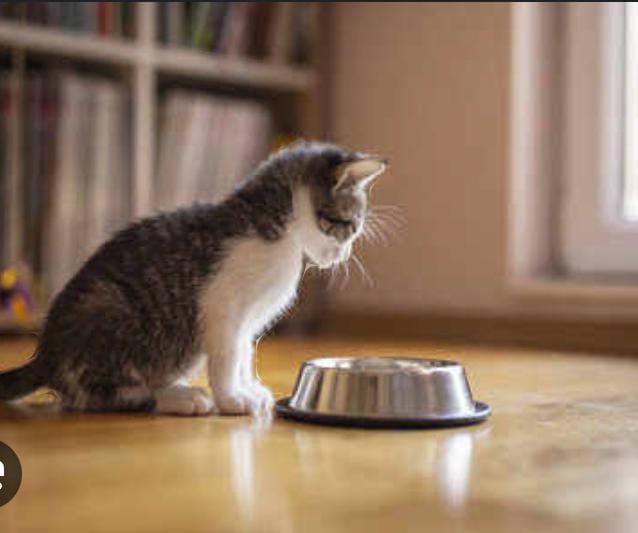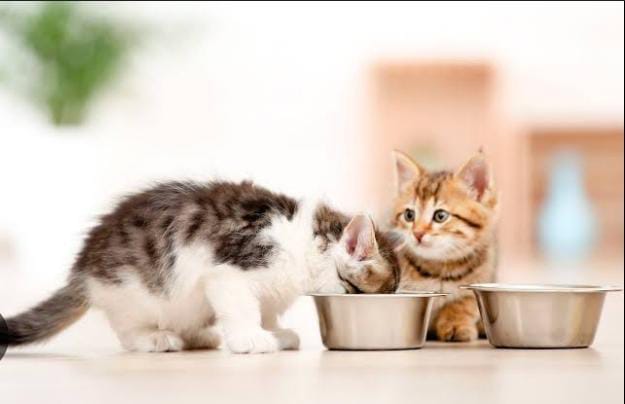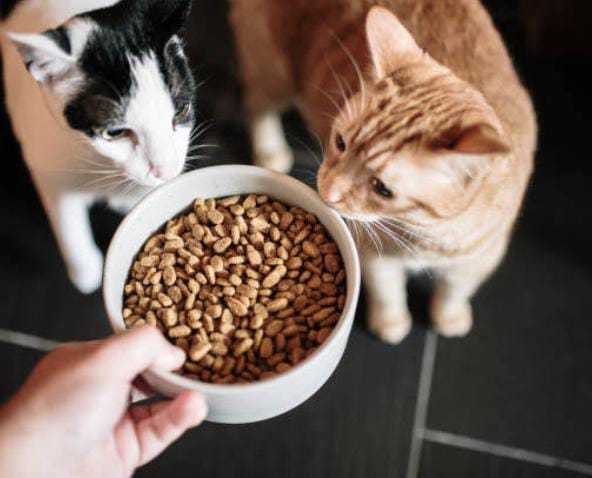Caring for your feline companion involves more than just playtime and cuddles; their diet is a crucial component of their overall well-being. Cats have unique nutritional needs that set them apart from other pets. To ensure your cat’s health and happiness, it’s essential to understand these requirements and choose the right diet. This ultimate cat food guide will help you navigate the various options, identify key ingredients, and tailor your cat’s diet to their specific needs, ensuring they thrive both physically and mentally.
Understanding a Cat’s Nutritional Needs
Cats are obligate carnivores, meaning their diet must primarily consist of meat. Unlike omnivores or herbivores, cats require higher levels of protein and specific amino acids like taurine, which are naturally found in animal tissues. A deficiency in taurine can lead to serious health problems, including heart disease and vision issues. Additionally, cats need certain vitamins (such as A and D) and fatty acids (like arachidonic acid) that are predominantly available in animal products.
Choosing the Right Cat Food
- Commercial Cat Food: The most convenient option for many cat owners, commercial cat food comes in three main types: dry, wet, and semi-moist. Each has its pros and cons.
- Dry Food: Also known as kibble, dry food is convenient, easy to store, and can help keep a cat’s teeth clean. However, it often contains more carbohydrates than necessary, which can lead to obesity and other health issues if not managed properly. When selecting dry food, look for high-quality options with meat listed as the first ingredient, and avoid those with excessive fillers like corn or soy.
- Wet Food: Canned wet food is closer to a cat’s natural diet as it contains more moisture, which is beneficial for hydration and urinary health. Cats that eat wet food are less likely to suffer from kidney and urinary tract issues. Ensure the wet food is high in animal protein and low in carbohydrates, and check the ingredient list for quality meat sources.
- Semi-Moist Food: This type is less common and often contains artificial colors, flavors, and preservatives. While convenient, it’s typically not the best option for everyday feeding due to its lower nutritional value and potential health risks.
- Homemade Diets: Some cat owners prefer to prepare homemade meals for their pets. This can be a healthy option if done correctly, but it requires a significant understanding of feline nutrition to ensure all essential nutrients are provided. Raw diets, in particular, have gained popularity; however, they come with risks such as bacterial contamination and nutrient imbalances. If considering a homemade or raw diet, consult with a veterinary nutritionist to formulate balanced meals that meet all of your cat’s nutritional requirements.
- Specialty Diets: Some cats have specific health needs that require special diets. For example, overweight cats may benefit from weight management formulas that are lower in calories but still nutrient-dense. Cats with food allergies or intolerances may need hypoallergenic diets with novel protein sources like duck or venison. There are also prescription diets for cats with conditions such as kidney disease, diabetes, and gastrointestinal issues. Always consult your veterinarian before switching to a specialty diet to ensure it’s appropriate for your cat’s condition.
Key Ingredients to Look For
When choosing cat food, focus on the following key ingredients to ensure optimal health and happiness:
- High-Quality Protein: Look for named meat sources (chicken, beef, fish) rather than generic terms like “meat by-products.” High-quality protein supports muscle health and overall well-being.
- Taurine: This essential amino acid is critical for heart health, vision, and reproductive function. Ensure it is included in the ingredients list.
- Omega-3 and Omega-6 Fatty Acids: These fats are important for a healthy coat, skin, and brain function. Ingredients like fish oil, flaxseed, and chicken fat are good sources.
- Vitamins and Minerals: Cats need a range of vitamins and minerals, including vitamin A, B vitamins, calcium, and phosphorus. Check that the food is fortified with these essential nutrients.
Ingredients to Avoid
Certain ingredients can be harmful or offer little nutritional value to cats:
- Artificial Additives: Colors, flavors, and preservatives can cause allergies and other health problems. Look for natural preservatives like vitamin E (tocopherols) and vitamin C (ascorbic acid).
- Fillers: Ingredients like corn, wheat, and soy are often used as fillers and can contribute to weight gain and digestive issues. Opt for foods with whole grains or grain-free options if your cat has a sensitive stomach.
- By-Products: While not inherently bad, by-products can be of lower quality. Choose foods where meat is the primary ingredient and by-products are limited.
Feeding Guidelines
Understanding how much and how often to feed your cat is crucial. Overfeeding can lead to obesity, while underfeeding can cause malnutrition. Follow these general guidelines:
- Kittens: Require more frequent meals (three to four times a day) due to their rapid growth and high energy needs.
- Adult Cats: Typically do well with two meals a day, but some cats prefer to graze, in which case free feeding can be an option if using dry food.
- Senior Cats: May need adjustments in their diet and feeding schedule due to changes in metabolism and activity levels. Consult your vet for personalized advice.
Monitoring Your Cat’s Health
Regular veterinary check-ups are essential to monitor your cat’s health and adjust their diet as needed. Pay attention to your cat’s weight, coat condition, energy levels, and litter box habits as indicators of their overall health. Sudden changes in appetite, behavior, or physical condition should be addressed with your veterinarian promptly.
Conclusion
Choosing the right food for your cat is a cornerstone of ensuring their health and happiness. By understanding their unique nutritional needs and selecting high-quality, appropriate foods, you can provide your feline friend with a diet that supports their well-being. Whether you opt for commercial cat food, homemade diets, or specialty foods, always prioritize ingredients that promote health and avoid those that could be harmful. Regular monitoring and veterinary consultations will help keep your cat in peak condition, leading to a long, happy, and healthy life together.


